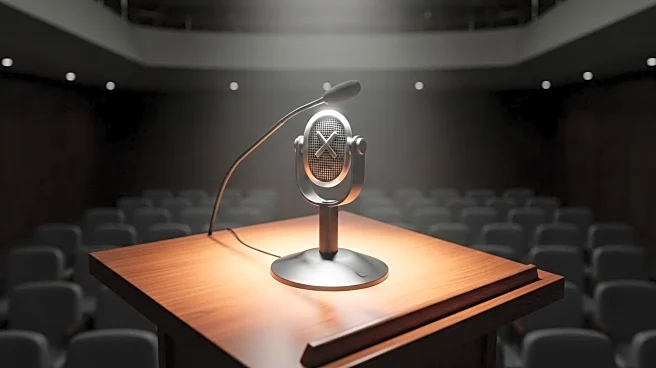What's Happening?
The Pentagon has introduced a new media policy that imposes significant restrictions on journalists. This policy mandates that journalists sign an agreement to report only on information that has been officially authorized for release by the Pentagon. The move has sparked a refusal from various media outlets, who argue that the policy undermines journalistic freedom and the ability to report independently on military affairs. The policy is seen as an attempt to control the narrative and limit the dissemination of information that has not been vetted by the Pentagon.
Why It's Important?
The implementation of this restrictive media policy by the Pentagon is significant as it raises concerns about press freedom and transparency in government operations. By controlling the flow of information, the Pentagon could potentially influence public perception and limit critical reporting on military activities. This move may affect the public's ability to receive unbiased information, impacting democratic processes and accountability. Media outlets refusing to comply with the policy highlight the tension between government control and journalistic independence, which is crucial for a healthy democracy.
What's Next?
The refusal by media outlets to comply with the Pentagon's new policy may lead to legal challenges or negotiations to amend the policy. Stakeholders, including press freedom organizations and civil rights groups, are likely to become involved, advocating for the protection of journalistic rights. The situation may prompt discussions in Congress regarding the balance between national security and press freedom, potentially leading to legislative action to address these concerns.
Beyond the Headlines
This development could have long-term implications for the relationship between the media and government institutions. It may set a precedent for other government agencies to implement similar policies, further restricting journalistic access to information. The ethical considerations surrounding the control of information and the role of the media in holding power to account are likely to be debated, influencing future policies on media access and transparency.








